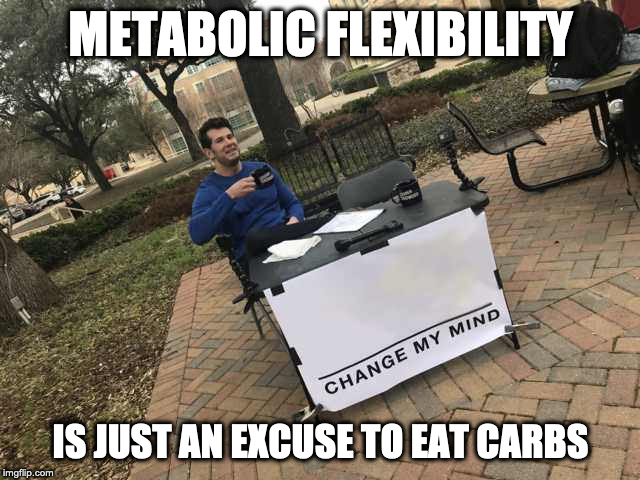Several frequent posters to this forum continually talk about consuming carbohydrates to gain and/or maintain so-called ‘metabolic flexibility’. A few others bring it up occasionally. All these posters talk about ‘metabolic flexibility’ as something desirable and healthy. So what exactly are these people talking about?
From what I can determine from their posts, to all these folks ‘metabolic flexibility’ means eating carbohydrates for the purpose of - eating carbohydrates. In other words, they are using the term ‘metabolic flexibility’ to justify eating carbohydrates.
Now, I stand to be corrected if I am interpreting this incorrectly. And I started this topic to give these folks the opportunity to correct me.
My understanding of so-called ‘metabolic flexibility’ is this. When glucose levels are low, especially over time, most cells will switch to using fatty acids and/or ketones for fuel. Ketones allow cells to be metabolically flexible. Eating carbohydrates not so much. Since gluconeogenesis synthesizes all the glucose we need for those cells and organs that can’t utilize fatty acids and/or ketones there is zero need to eat carbohydrates, which are simply sugar molecules of various descriptions.



